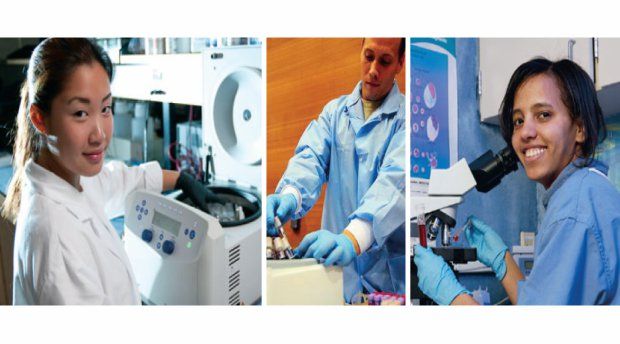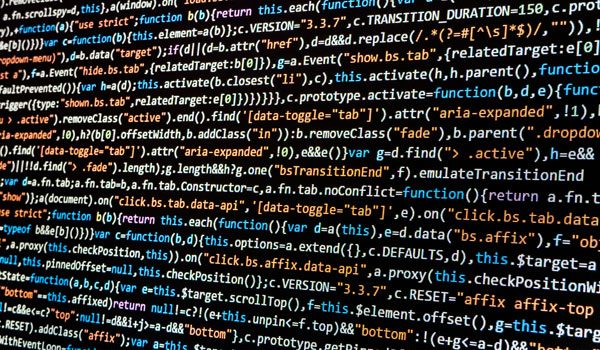Physicist Jobs and Careers: Physicist Job Description
Post Views 19The physicist researches phases of physical phenomena by conducting experiments and analyzing the results. His goal is to find practical applications for the most basic laws of nature. The study of physics falls into two categories: Mechanics and statics. Mechanics deals with the motion of solids, liquids, and gases, while statics pertains to the study of matter at rest. Within these categories, physicists are divided into theoretical physicists, who compose laws and draft mathematical equations to express those laws, and experimental physicists, who are involved with the practical uses of the laws in existence. Like most scientists, physicists usually specialize in a small area, since the field is vast and progress comes slowly. Physicists tend to be curious and creative–this is a field in which people must be able to design the equipment necessary to perform their experiments if none exists.
The field of physics demands dedication, and most physicists prove theirs by working long hours, about 60 per week. The majority of physicists are employed by universities and divide their time between research, teaching, and writing scientific articles. Many physicists work independently on problems, while others work in laboratories as part of teams for the duration of particular projects. Physicists working in industry conduct countless experiments in the area in which their companies specialize, and often work closely with engineers. The physicist and engineer sometimes have overlapping duties, but generally the physicist is more concerned with theory while the engineer is focused on technology. For those outside of industry, trying to procure funding for research is a real drain on their time, especially in the current political atmosphere of massive cutbacks in research funding across the disciplines. One Ivy League physicist complains that fundraising is a necessary evil in his line of work, with recent budget cuts affecting almost everyone in the field.
Paying Your Dues
Excellent mathematical skills and statistical knowledge are required of the physicist, who will spend a large part of his academic life studying these subjects. The physicist must be as competent in these areas as any mathematician or statistician. Computer knowledge is also key. The most successful physicists go beyond a Bachelor’s degree to get a Master’s and then a doctorate, which entails a significant piece of original research. Without postgraduate degrees, it’s generally difficult to find work as a physicist. Those who do land a job in this field with only a B.S. will find that they need to further their studies if they want to progress beyond rudimentary lab duties.
Associated Careers
A large number of non-practicing physicists end up teaching. Depending on the degree she has, a physicist can teach science in high school or at the college level. A background in physics along with some writing talent can also help you procure a job in scientific journalism. The field most closely related to physics is engineering. Engineers need to have a sophisticated knowledge of physics, but the course of study is often not as long. There are also fields that unite physics with other sciences. Biophysicists, for example, study the processes of life by bringing together physics, chemistry, and biology, while astronomers and astrophysicists supply information to physicists in such complicated areas as thermonuclear radiation.
Past And Future
The origins of physics can be traced to Aristotle, who wrote at a time when physics was considered a philosophical science. It wasn’t until 1,000 years later, with the work of Galileo, that physics was acknowledged to be a hard mathematical science. Galileo’s discoveries in physics, the fact that matter of varying weights will always fall at the same speed, for instance, have earned him the label of “first modern scientist.” Since then, physics has progressed rapidly, with many breakthroughs, such as the light bulb and the motion picture, still baffling to many people yet crucial to daily life.
Physicists agree that there is plenty of room for the field to grow as new discoveries are made concerning nuclear energy, communications, the ocean, and space. Unfortunately, the growth rate for this career is expected to be slower than average in the near future due to government cuts in funding, which will affect the field substantially. Eighty percent of employed physicists work for universities or the government. But as one prominent physicist consoles himself, if you have a degree in physics, you have something very few people have.
Quality of Life
Two Years Out
Physicists report high levels of satisfaction with their chosen profession at all levels. Very few leave the field at this time. Physicists are a dedicated lot, and after having spent upwards of seven years preparing for this career they rarely lose interest so soon.
Five Years Out
Those who leave the field at this time sometimes report feeling like failures for the first year or so in the broader job market. They do however, find their educational backgrounds to be invaluable assets. A doctoral degree in physics can open a number of doors in other fields.
Ten Years Out
Many physicists leave the profession at this time because they feel they have “topped out” in their field. They go on to seek employment that will allow them to use their scientific background in less scientific ventures. A number of them report, however, that they miss being physicists.
Professional Profile
| # of people in profession: | 11,500 |
| % male: | 90 |
| % female: | 10 |
| average hours per week: | 40 |
Professionals Read
American Journal of Physics
Physics Today
Physics News Update
Books, Films and TV Shows Featuring the Profession
IQ
The Manhattan Project
Fat Man and Little Boy
Genius
Major Employers
| Dupont 1007 Market Street Wilmington, DE 19898 Tel: 302-774-7321 Contact: Human Resources Professional Staffing |
AT&T Bell Labs 600 Mountain Avenue P.O. Box 636 Room 30-325 Murray Hill, NJ 07974-0636 Tel: 908-582-3000 Contact: Personnel Dept. |
National Semiconductor Corp P.O. Box 58090 Santa Clara, CA 95052-8090 Tel: 408-721-5000 Contact: Human Resources |
You’ll Have Contact With
Chemists
Lab Technicians
Mathematicians
Researchers
Major Associations
| American Geophysical Union 2000 Florida Avenue, NW Washington, DC 20009 Tel: 202-462-6900 Fax: 202-328-0566 |
American Institute of Physics 1 Physics Ellipse College Park, MD 20740 Tel: 301-209-3000 Fax: 301-209-0843 |
American Nuclear Society 555 North Kensington Avenue La Grange Park, IL 60526 Tel: 708-352-6611 Fax: 708-352-0499 |



 How to Ace a Dental Hygienist Interview
How to Ace a Dental Hygienist Interview  How to Get a Job on a Cruise Ship: What it is Like Working on a Cruise Ship
How to Get a Job on a Cruise Ship: What it is Like Working on a Cruise Ship  Jobs That Allow You to Work Remotely
Jobs That Allow You to Work Remotely  Becoming an Art Dealer: What it is Like Having a Career as an Art Dealer
Becoming an Art Dealer: What it is Like Having a Career as an Art Dealer  What Does a Medical Laboratory Technician Do?
What Does a Medical Laboratory Technician Do?  Profiles of People Who Work At Home
Profiles of People Who Work At Home  7 Jobs for People Who Want to Work in Tech but Aren’t an Engineer
7 Jobs for People Who Want to Work in Tech but Aren’t an Engineer  Fashion Editor Jobs Are Hard to Find So Look at Your Options
Fashion Editor Jobs Are Hard to Find So Look at Your Options